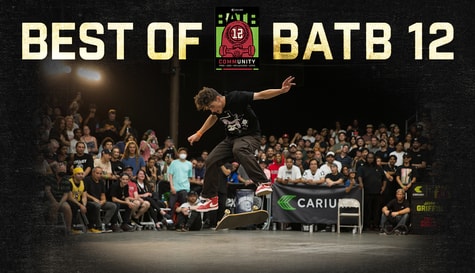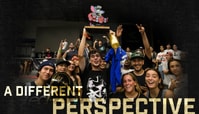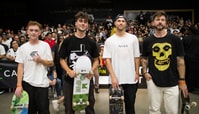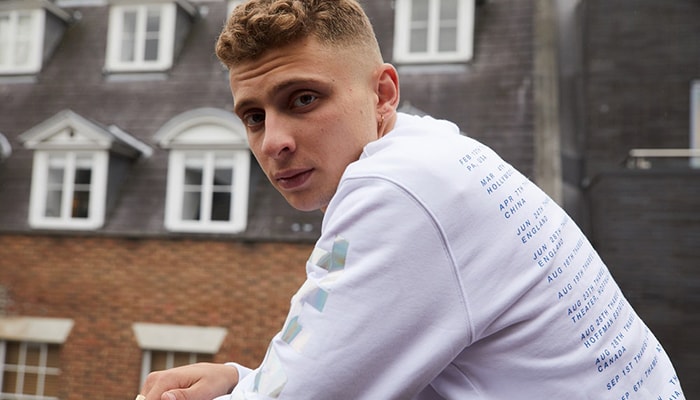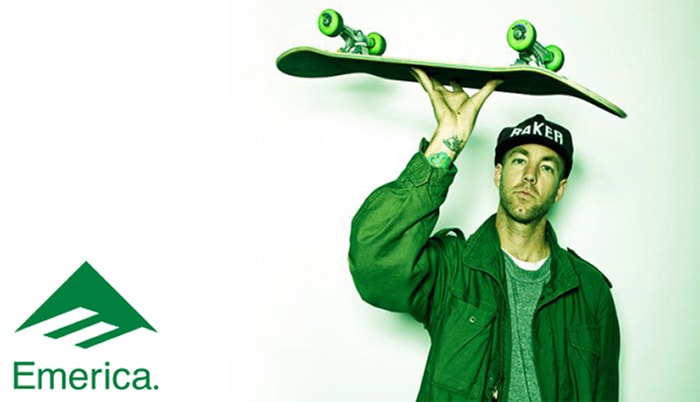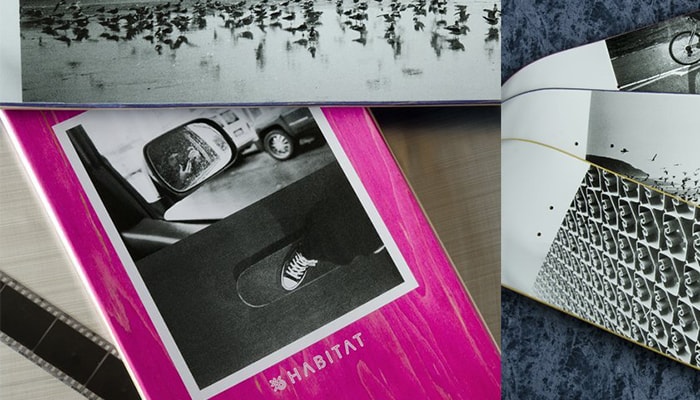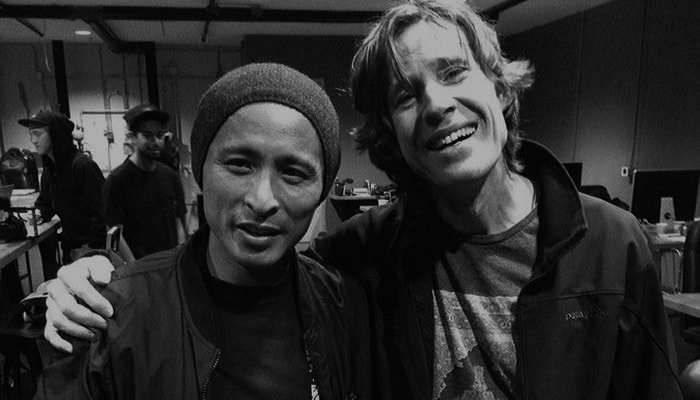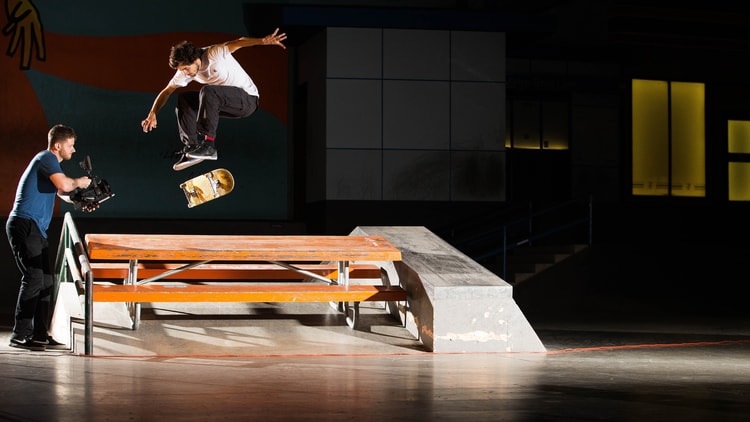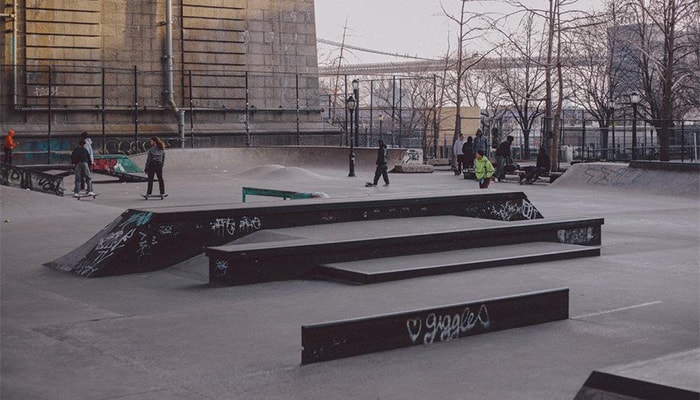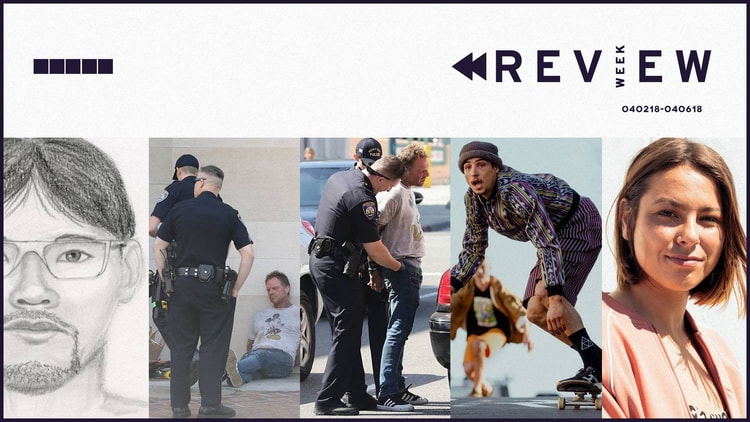MANNY SANTIAGO TALKS YOUTUBE AND VLOGGING IN OUR LATEST INTERVIEW — How Manny Is Using YouTube to Further His Career

courtesy of Jorge Ayala
WORDS: Leland Ware
The impact that YouTubers have had on skateboarding is no secret. In recent years, we’ve seen some of skateboarding’s most established brands start to lose their footholds in the industry. At the same time, some of the companies based on YouTube accounts seem to be amassing small empires. This fact alone puts these two worlds at odds with each other.
There’s also the question of legitimacy. These YouTubers have not paid their dues in the traditional sense through photos, video parts, and magazine coverage. Is it even fair to call them pros? These are the sorts of questions that usually pop up when discussing this topic. And the subject is certainly open for debate.
Manny Santiago’s legitimacy as a pro is unquestionable, though. He skates SLS alongside Nyjah Huston and Shane O’Neill. His catalog of video parts are all impressive. And he’s one of the elite group of skaters that can say they’ve filmed a Battle Commander for The Berrics. Manny’s resume is as solid as it gets.
Despite all of these accolades, Santiago decided to foray into the vlogging world—a move that he acknowledges as being controversial, but working for him. He launched his MannysWorld YouTube channel a year ago, and has been steadily filling it with content ever since. And, to our knowledge, he’s the only established pro to fully embrace the platform thus far. With all of this in mind, we wanted to find out why Manny decided to become a YouTuber, and what challenges he’s been facing since starting.
“I used to be really big into YouTubing before YouTube was a thing to do.”
What made you decide to start vlogging?
I used to be really big into YouTubing before YouTube was a thing to do. As my career went on, and I got a lot busier, I didn’t have as much time to do it. Not that I stayed away from it on purpose. I just had other priorities that had to be taken care of. But when I started Fortune Skateboards, my business partner—Brett Conti, who’s another vlogger—advised me that it’d be good for the brand if I started vlogging again. He told me that I have a really interesting life and kids want to see what goes on behind the scenes with a pro skater. But not told from other people’s perspective, told from themselves. With how much love goes into having a brand, I’m going to do whatever it takes for the brand to succeed. So I told him that I would do it.
At first, it was tedious. And I was still really busy. As the videos went on, I realized how to make content, and just really show what I was doing all of the time. I really got back into it. It promotes the brand, but it also shows the kids and the fan base my day-to-day. Its pretty much just getting back to the roots of showing my fans what I do all of the time.
You said that you had to get used to it. How does vlogging work? You’re filming yourself—or are other people filming you?
At first, it was weird because I used to have Spanish Mike or Arnoldo film me. It went from that to me having to film myself. When I’m in my backyard or private places where there’s not a lot of people, it’s pretty easy. When you’re around other people that aren’t okay with the idea of vlogging, other skaters, or people that have no idea what you’re doing because you’re filming yourself, it does get a little awkward. So there’re battles that you have to overcome. It’s just being comfortable with yourself, and knowing that you’re doing something awesome for the viewers.
One of the things that I had to overcome was public speaking to my camera. Another thing was making sure that I was getting the right content; the right b-roll shots. I had to make sure that things are covered across the board. If I hand someone the camera because I’m skating, I have to make sure that they’re filming the tricks. And that it’s in focus, stuff like that. As you go on, you start to get better at it. For a lot of my videos, I switch between my GH4 and my iPhone. Some of them are all on my iPhone. It just depends on how you want to show stuff.
And you meet up with other YouTubers. The thing is, in skateboarding, YouTubers have a bad reputation. But they’re no different from any of us. They love to skateboard. They’re really good people. And they’re happy. They decided to take skateboarding into their own hands, and show their fan base what they do every day. And they don’t want to be lazy about it.
It’s a lot. If you’re skating with someone that doesn’t like to be filmed they don’t want to do a vlog. Then, if you’re skating with someone that vlogs and skateboards, some skaters don’t want to be around them. It becomes very confusing. For me, I just want to skate with anybody who’s happy and down to have a good time.
Battle Commander [2017]
“There’s no point in hating on people if they’re just doing cool, fun stuff.”
Yeah, that’s kind of why I wanted to talk to you about it. There is that stigma. But you were already an established pro skater when you started. What was it like stepping into that vlogging world for you?
Honesty, I didn’t even care. I didn’t feel any kind of way about it because I paid my dues in the industry. But I also have an obligation as a professional skateboarder to provide stuff for the viewers and fans. I’ve always put my career first above a lot of things. This had to be one of the things that had to happen to help my career, and keep the fan base happy. I could honestly care less what any skaters in the industry would say or think about me because I have put in more work than most of them anyway. I don’t skateboard for them. I skateboard because it makes me happy. If you want to be a part of the movement, then you can be a part of it. If not, I’m still gonna show you love. There’s no point in hating on people if they’re just doing cool, fun stuff. So when it came down to it, I wasn’t really scared or thinking about what people would say. I just started doing it, and having fun.
With Fortune, what kind of results are you guys seeing from what you’re doing on YouTube?
There’s a lot more brand awareness, and the fan base is growing. It’s really just another tool to spread your message to the fans, and show them why they like the brand. It’s no different from what you guys do at The Berrics. It’s no different from what Thrasher does. It’s worded and shown a little different. But it’s no different. Why wouldn’t you do whatever it takes to help your brand when you love what you do? And it gives a positive message. There’s already enough hate in the world. If you can spread love and happiness through what you’re doing, then it’s better to do the most that you can. But with Fortune, everything is growing. We have good sales online and good sales in the shops. I can’t really complain. As for the team, we have Rachelle Vinberg, Chris Pierre, and myself. We’re announcing a new rider in the next couple of months. We’re just doing skate stuff with our skate friends, and having a good time.
Salt N’ Pepper [2014]
Do you guys monetize the videos through YouTube? How does that work?
We monetize them. It is hard work. You do all of these videos. Whether it’s a dollar, five cents, or a hundred bucks, something’s something. It just builds up. Most of the time we use that for our budget for more camera equipment or to go on trips. We use copyright-free music and just enjoy making fun edits. And kids look forward to these things. It’s no different from Sk8mafia Saturdays or Mikey Days, or even Instagram. It’s a way to dictate your career versus having someone else do it. There’re YouTubers out there making more money than 80 percent of skating. At the end of the day, the way I see it is it’s your work. So why not do it how you want? I’ve paid my dues. I don’t care anymore. If I were to be gone tomorrow, nobody is going to come and help me, or pick me up.
Do you think that in the future vlogging is going to be a standard part of being a pro skater?
Just like with anything, I think that everything evolves. If you do it, it will help. If you don’t, I don’t know. But it’s like nowadays, skateboarders have to have an Instagram. Skateboarders have to have a Twitter. If they don’t, it’s not good for the brand. So the brand is not going to care for you because you’re not supporting it the way that you are supposed to. I think eventually, at some point, there’s going to be something that’s more [popular] than vlogging. And that’s going to take its hold. And everything is going to continue to evolve as long as technology grows.
9-10-11 [2011]
__ ”It’s a way to dictate your career versus having someone else do it.” __
I agree. Is there anything else that you want to plug or mention? We’re moving towards the summer, what do you have planned?
Yeah, I got all of the SLS stops and the Dew Tour. I’m going to China in a couple of weeks for a contest. I’ve got a Ricta part coming out towards the fall. And I’ve got a special part that I’m putting out on the YouTube channel this Christmas. I’m putting it out myself like how I did 9-10-11 [2011]. So look out for that. And I hope people watch the videos because it’s a different way to look at what we do. We’re more than just skateboarders. We’re human beings. We have other responsibilities, and other hobbies. So in that aspect, I hope people watch and like it.
Visit MannysWorld for fun, cool, hater-free skateboarding entertainment.


